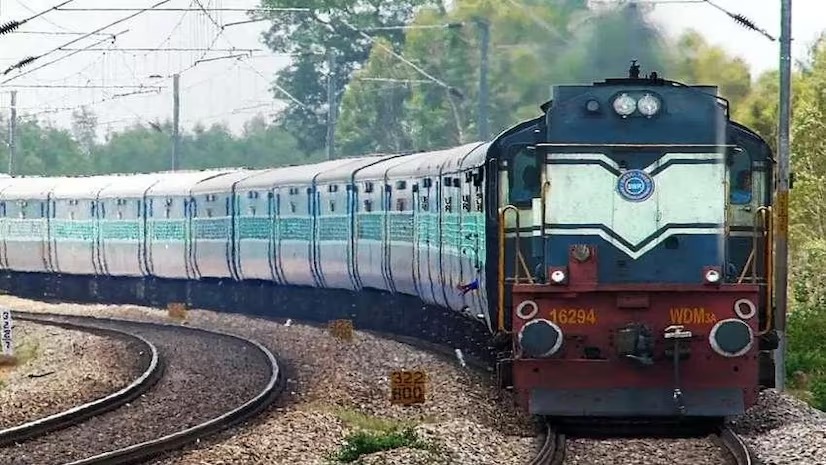Central Railway has announced the extension of multiple special train services between Pune, Kolhapur, Solapur, LTT (Lokmanya Tilak Terminus), Badnera, Nashik, Harangul, and Daund until 30 September 2025. The move—prompted by sustained passenger demand—reinforces both equitable regional connectivity and greener travel corridors in Maharashtra.
From 1 July to 30 September, reserved and unreserved services on daily and weekly schedules will continue seamlessly, with no change to timings, coach composition, or halts. These include the Pune–Kolhapur Daily Special (Train 01023/01024), now covering 92 extra trips each way, and the LTT–Solapur weekly special (01436/01435), extended with 14 additional services. Unreserved trippers along Solapur–Daund (01461/01462), Solapur–Kalaburagi (01465/01466), Badnera–Nashik Road (01211/01212), and Pune–Harangul (01487/01488) also benefit from 92 new trips in each direction. Railway officials state the surge in footfall on these routes calls for continued operation. “The demand trajectory justifies extending these services beyond the originally planned period,” said a senior official from Central Railway’s operations wing. “We’re facilitating affordable, mass transit as part of our sustainable mobility and regional development mandate.”
Unreserved daily services, especially along Solapur–Daund and Badnera–Nashik Road corridors, serve a largely low-income and daily-commuting demographic. Persisting with existing halts, timings, and coach makeup ensures that regular travellers—farm labourers, students, and local workers—continue to rely on predictable, no-reservation travel options. Reserved services, like the Pune–Kolhapur and LTT–Solapur specials, primarily support leisure travel and regional tourism, notably to religious and heritage destinations. Extending these routes will alleviate pressure during the Dixit and Ganpati festival season, while supporting weekend travellers to western Maharashtra and neighbouring Karnataka. Transport analysts emphasise that rail remains the most carbon-efficient mass transit mode for intercity travel. Maintaining these services avoids a modal shift to buses or private vehicles, which would increase congestion and emissions.
Central Railway’s decision follows a broader national push for sustainable transport through rail electrification and suburban link expansion. Officials confirm ongoing electromotive traction along these lines, reducing emissions and operating costs. Freight and passenger services share these UIC (Union Internationale des Chemins de fer) corridors, reflecting a multimodal network design. Experts observe duplicated services during peak travel periods help distribute flows—improving energy efficiency, cutting delays, and offering resilience during disruptions. According to a transport sustainability expert based in Pune, “Electrifying these regional corridors, then extending clean mass train services, supports net‑zero carbon goals while preserving connectivity for low‑income commuters.”
The extended specials also promote socio-economic uplift in under-served areas. Villages around Harangul and Kalaburagi previously had limited daily inter-city connectivity. Regular unreserved trains play a vital role in enabling access to urban labour markets, healthcare, education, and services. Economists note that every new train trip represents an opportunity—reducing travel cost, no‑show risk, and absenteeism. This ultimately contributes to workforce participation rates, rural-urban social mobility, and inclusive economic growth. Central Railway’s firm stance on retaining existing schedules, coach composition, and halts helps minimise disruption. It aids habitual commuters through consistent travel patterns—essential in maintaining daily routines, local markets, and seasonal employment chains.
As detailed by an operations planner, “Using standard rakes and halts simplifies logistics, prevents cascading delays, and ensures clarity for passengers who book their return well in advance.” While extensions add capacity, they also place strains on train maintenance, track upkeep, and crew deployment. Railway officials confirm additional rakes, crew rosters, and yard space have been allocated to meet service continuity until September. Observers suggest railway zones should prioritise performance metrics—punctuality, cleanliness, safety—and stress-test infrastructure in alignment with Indian Railways’ 2030 modernisation objectives. Additional stops or demand-responsive services might be considered for emerging regional corridors as passenger data evolves. This extension complements India’s green urban development agenda, reaffirming rail’s central role in sustainable transport ecosystems. It strengthens ongoing commitments under BharatNet, performance-based electrification, and metro integration strategies—where suburban and intercity rail services interface through seamless ticketing and mobility hubs. With climate resilience and decarbonisation gaining urgency following COP26, extensions of clean, electric-powered special trains mark pragmatic steps in Maharashtra’s shift toward low-carbon mobility and inclusive regional infrastructure.
Some civic groups have raised questions about cost-recovery. Special trains are often cross-subsidised—fares peg average revenue per passenger above expenditure. Analysts urge Central Railway to transparently report extension outcomes and assess whether ticket pricing and subsidy models remain equitable and sustainable. Local travel watchdogs also ask if extensions might disadvantage regular Mail/Express trains. But rail planners assure that as scheduled network slots free up, priority gets redistributed to strengthen services on under-developed routes. Extending special trains from 1 July to 30 September demonstrates Central Railway’s responsive approach to regional demand, passenger welfare, and sustainability. The move preserves equitable access to green mobility while balancing operational efficiency and service quality.
As the extended services enter their third quarter cycle, sustained monitoring, stakeholder engagement, and timely course corrections will determine whether they become a model for demand-responsive, low-carbon regional transport—or merely a temporary solution to seasonal surges.
Also Read : Kochi Metro Offers 50 Ride Student Pass for Rs 1100


